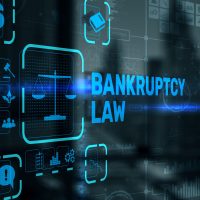Chapter 7 vs. Chapter 13 Explained

Fundamentally, Chapter 7 and Chapter 13 are the same. Both kinds of consumer bankruptcy offer a fresh start to an honest but unfortunate debtor. Honest debtors are forthcoming about their financial situations and cooperate with court personnel, including the trustee (people who manage bankruptcies for judges). Unfortunate debtors file bankruptcy due to circumstances beyond their control, like a job loss or excessive medical bills.
In many ways, however, Chapter 7 and Chapter 13 are different, mostly because they provide relief to different kinds of distressed debtors. More on that below.
Chapter 7 and Chapter 13 are also similar in that a Chicago bankruptcy attorney should always handle these matters. Unlike bankruptcy petition preparers, attorneys provide solid legal advice from start to finish. If necessary, attorneys also represent debtors in court. Furthermore, lawyers know how to take advantage of obscure bankruptcy loopholes. So, a partnership with a Chicago bankruptcy lawyer always pays off.
Chapter 7
The aforementioned loopholes include the redemption rule. This rule, which is also available in Chapter 13 bankruptcies, often benefits people who are upside-down on motor vehicle loans.
Assume Tom paid $5,000 for a car that’s now only worth $2,000. If he pays the finance company $2,000 before the judge closes the bankruptcy, the bank must tear up the remainder of the note, saving Tom $3,000.
Generally, Chapter 7 benefits debtors with significant unsecured debts, such as credit cards, medical bills, and payday loans. Chapter 7 discharges most unsecured debts. “Discharge” basically means the judge eliminates the legal obligation to repay a debt. The collateral consequences of that debt, like a credit lien, remain.
Chapter 7 protects debtors in other ways as well. The Automatic Stay is a good example. When debtors file their voluntary petitions, Section 362 of the Bankruptcy Code stops adverse creditor actions, such as:
- Repossession,
- Wage garnishment,
- Foreclosure,
- Creditor harassment, and
- Eviction
Usually, adverse actions like repossession and foreclosure are relatively easy to stop. However, in most cases, they’re almost impossible to reverse. So, if you face such financial pressure, it’s best to partner with a lawyer ASAP.
Chapter 13
We mentioned that discharge doesn’t affect collateral consequences. So, if Tom stops making car payments, the bank will repossess his car, whether he files bankruptcy or not.
Sometimes, people need more time to catch up on past-due home mortgage payments and other secured debt payments. Chapter 13 gives these debtors up to five years to make such payments. All the while, the Automatic Stay remains in place at least in most cases.
Discharge is at the heart of a Chapter 7, and this protected repayment period is at the heart of a Chapter 13. The trustee works with the debtor on an income-based monthly debt consolidation plan. As long as this plan meets minimum legal requirements, most bankruptcy judges approve it without holding a hearing.
Possible loopholes in a Chapter 13 include lien stripping. Assume Tom cannot pay the $2,000 fair market value for the car. The judge may reclassify the $3,000 obligation as an unsecured debt, since the car’s value isn’t high enough to secure it. If that reclassification occurs, the $3,000 is a dischargeable unsecured debt, as outlined above.
Connect With a Diligent Cook County Lawyer
No matter what kind of financial problem you are having, there’s a way out. For a free consultation with an experienced bankruptcy attorney in Chicago, contact the Bentz Holguin Law Firm, LLC. Convenient payment plans are available.
Source:
uscourts.gov/services-forms/bankruptcy/bankruptcy-basics/process-bankruptcy-basics


